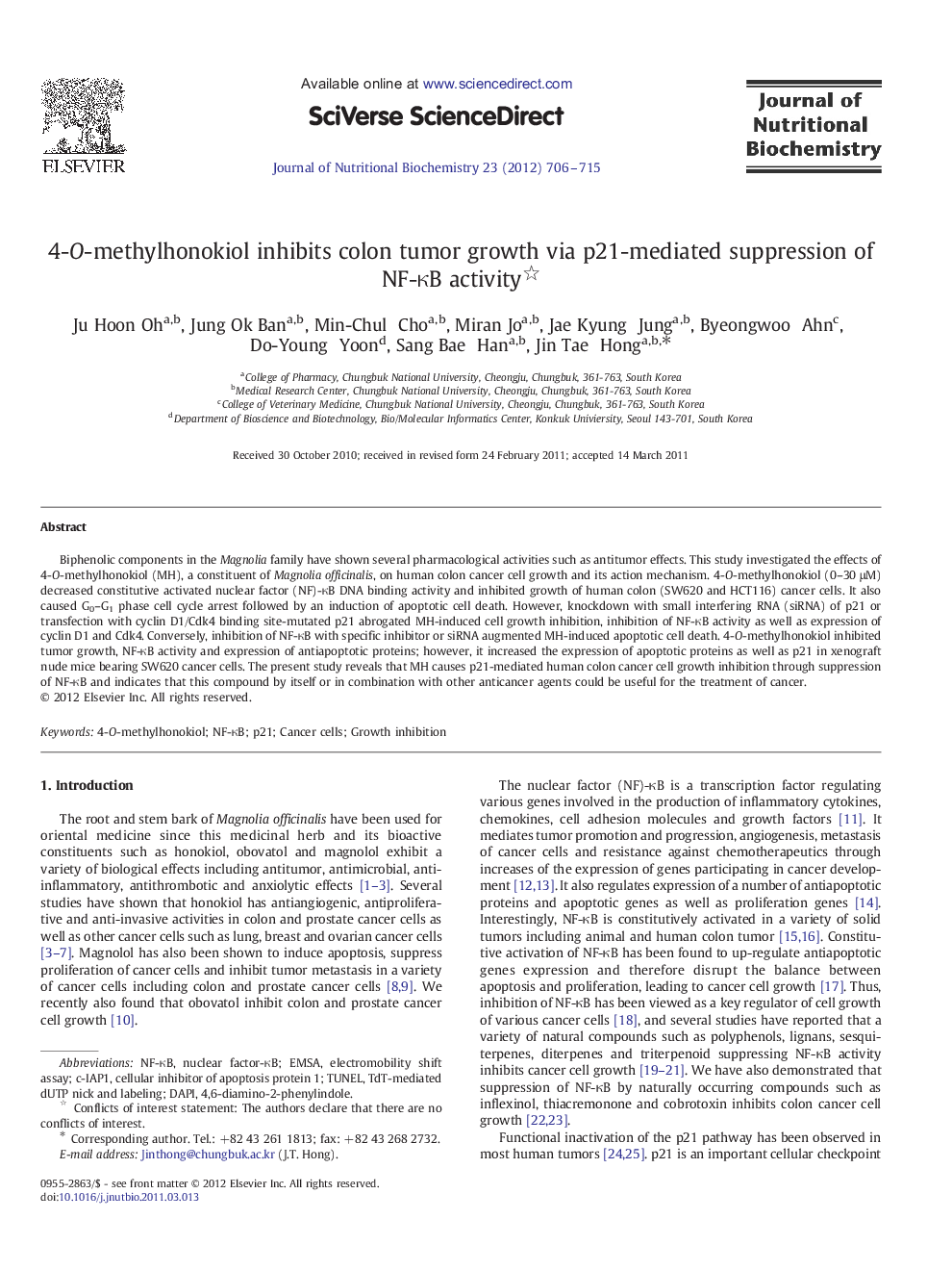| Article ID | Journal | Published Year | Pages | File Type |
|---|---|---|---|---|
| 1990318 | The Journal of Nutritional Biochemistry | 2012 | 10 Pages |
Abstract
Biphenolic components in the Magnolia family have shown several pharmacological activities such as antitumor effects. This study investigated the effects of 4-O-methylhonokiol (MH), a constituent of Magnolia officinalis, on human colon cancer cell growth and its action mechanism. 4-O-methylhonokiol (0-30 μM) decreased constitutive activated nuclear factor (NF)-κB DNA binding activity and inhibited growth of human colon (SW620 and HCT116) cancer cells. It also caused G0-G1 phase cell cycle arrest followed by an induction of apoptotic cell death. However, knockdown with small interfering RNA (siRNA) of p21 or transfection with cyclin D1/Cdk4 binding site-mutated p21 abrogated MH-induced cell growth inhibition, inhibition of NF-κB activity as well as expression of cyclin D1 and Cdk4. Conversely, inhibition of NF-κB with specific inhibitor or siRNA augmented MH-induced apoptotic cell death. 4-O-methylhonokiol inhibited tumor growth, NF-κB activity and expression of antiapoptotic proteins; however, it increased the expression of apoptotic proteins as well as p21 in xenograft nude mice bearing SW620 cancer cells. The present study reveals that MH causes p21-mediated human colon cancer cell growth inhibition through suppression of NF-κB and indicates that this compound by itself or in combination with other anticancer agents could be useful for the treatment of cancer.
Keywords
Related Topics
Life Sciences
Biochemistry, Genetics and Molecular Biology
Biochemistry
Authors
Ju Hoon Oh, Jung Ok Ban, Min-Chul Cho, Miran Jo, Jae Kyung Jung, Byeongwoo Ahn, Do-Young Yoon, Sang Bae Han, Jin Tae Hong,
